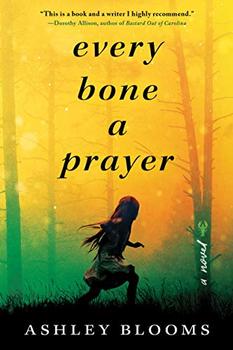I think that is an incredibly deep question, and I have enormous respect for Ashley Blooms for exploring it in this novel. I think that what she puts forward in this story is the idea that you can accept what has happened to you that you did not choose and not judge yourself. It will always stay with you, but it's not your fault. It's not fair that you have to live with this, but by caring for yourself, loving yourself, and surrounding yourself with people who love and care for you, you can find a way forward.
This book is a gift from the author to us. She was brave enough to dig into her personal experience of abuse and tell this story, and other victims of abuse and those of us who read this book and empathize with the characters can find our own way forward after reading it.



